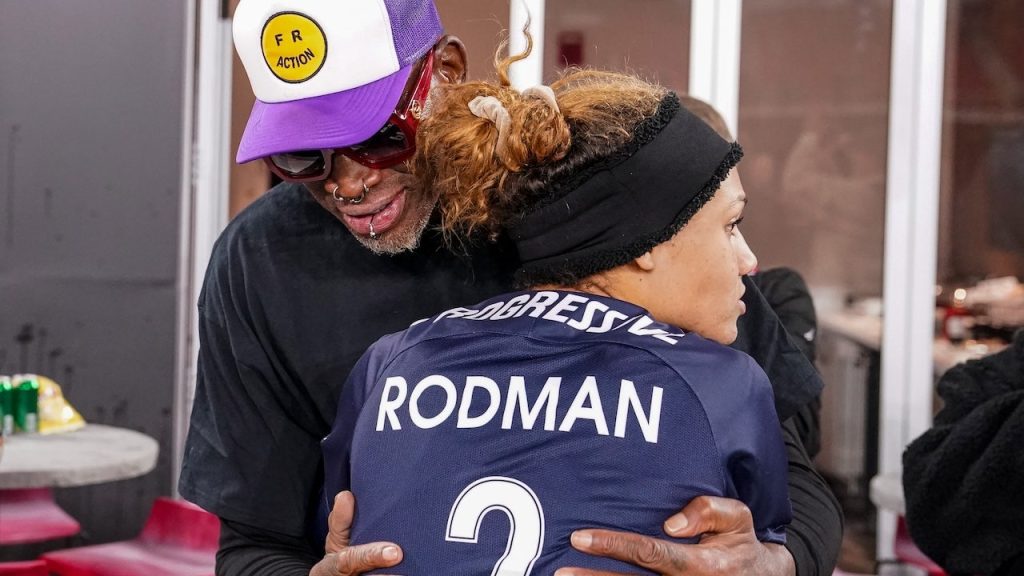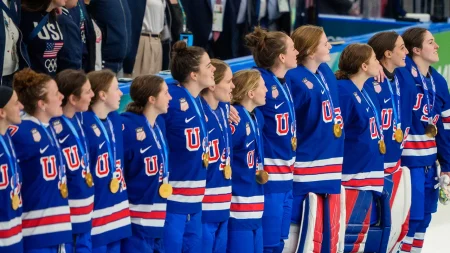The strained relationship between basketball icon Dennis Rodman and his daughter, soccer star Trinity Rodman, erupted into public view following Trinity’s candid interview on the “Call Her Daddy” podcast. During the interview, Trinity painted a picture of a largely absent father, stating, “He’s not a dad. Maybe by blood, but nothing else.” This stark assessment ignited a public exchange that further exposed the deep-seated emotional chasm between father and daughter. Trinity’s portrayal of her father as self-absorbed and prioritizing the spotlight over his children’s emotional well-being set the stage for a contentious back-and-forth played out in the media.
Dennis Rodman responded to his daughter’s interview with a public apology on social media. He claimed that he had been actively attempting to connect with Trinity, but his efforts had been thwarted by others advising her to ignore him. He expressed his enduring love and pride for his daughter, lamenting the lack of communication between them. Rodman’s apology, however, was met with derision by Trinity, who dismissed it as a performative gesture designed to garner attention rather than a genuine expression of remorse. She labeled the apology a “joke” and indicated her unwillingness to further engage with her father’s public pronouncements.
The public nature of this familial conflict laid bare the complexities of the Rodman family dynamic. Trinity’s assertion that her father thrived on the spotlight resonated with Dennis Rodman’s well-established persona as a flamboyant and attention-seeking figure. His career, both on and off the court, has been marked by unconventional behavior and a penchant for theatrics. This public image, however, seemed to clash sharply with the emotional needs of his daughter, who appeared to crave a more private and nurturing paternal presence.
Trinity’s account of growing up with a largely absent father sheds light on the long-lasting emotional impact of parental neglect. She described her father’s behavior as emotionally taxing, suggesting that his sporadic appearances in her life, often in the public eye, created a sense of instability and emotional manipulation. Her mother, Michelle Moyer, who divorced Rodman in 2012, reportedly attempted to shield Trinity and her brother, DJ Rodman, from the turbulence of their father’s lifestyle. This maternal intervention speaks to the challenging circumstances faced by children of high-profile individuals whose personal struggles often play out on the public stage.
The contrasting narratives presented by father and daughter underscore the difficulty of reconciling conflicting perspectives within a fractured family relationship. Dennis Rodman’s claim of attempting to connect with his daughter is juxtaposed with Trinity’s assertion that his efforts were insufficient and self-serving. This discrepancy highlights the subjective nature of familial experiences and the challenge of achieving mutual understanding when there is a history of hurt and resentment. The public forum in which this family drama unfolded further complicates the possibility of reconciliation, as each statement and response is subjected to public scrutiny and interpretation.
The Rodman family saga provides a poignant illustration of the human toll exacted by strained familial relationships, particularly when one party occupies the public eye. Trinity Rodman’s willingness to speak openly about her experience with her father reveals the enduring impact of parental absence and emotional neglect. Dennis Rodman’s public response, while intended as an apology, inadvertently reinforced his daughter’s perception of him as prioritizing attention over genuine connection. The public nature of this exchange underscores the challenges of navigating familial conflict in the glare of the media spotlight and the difficulty of achieving resolution when deep emotional wounds remain unaddressed.














